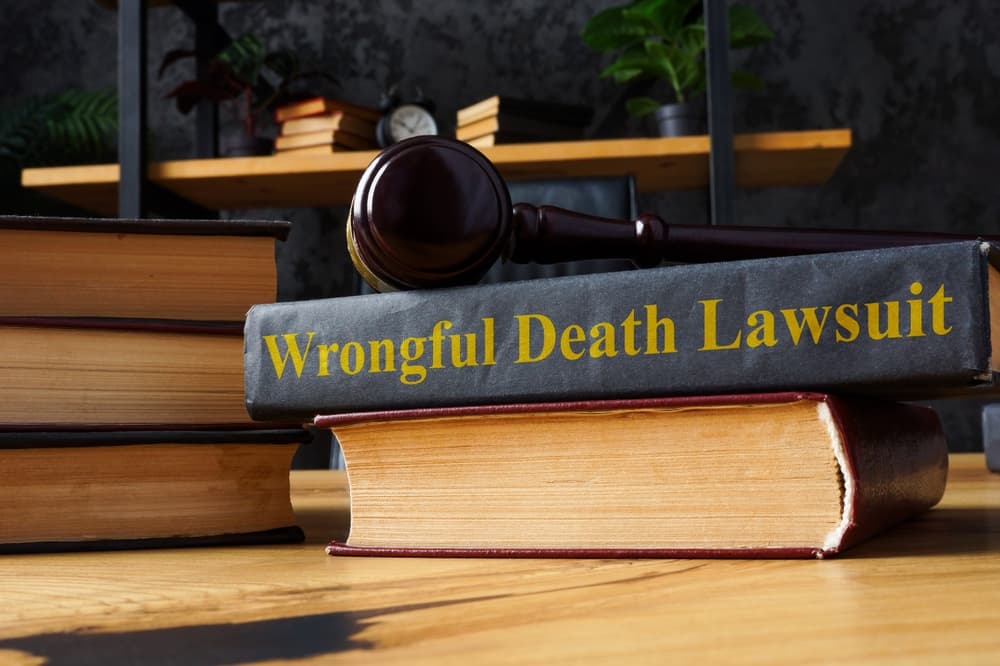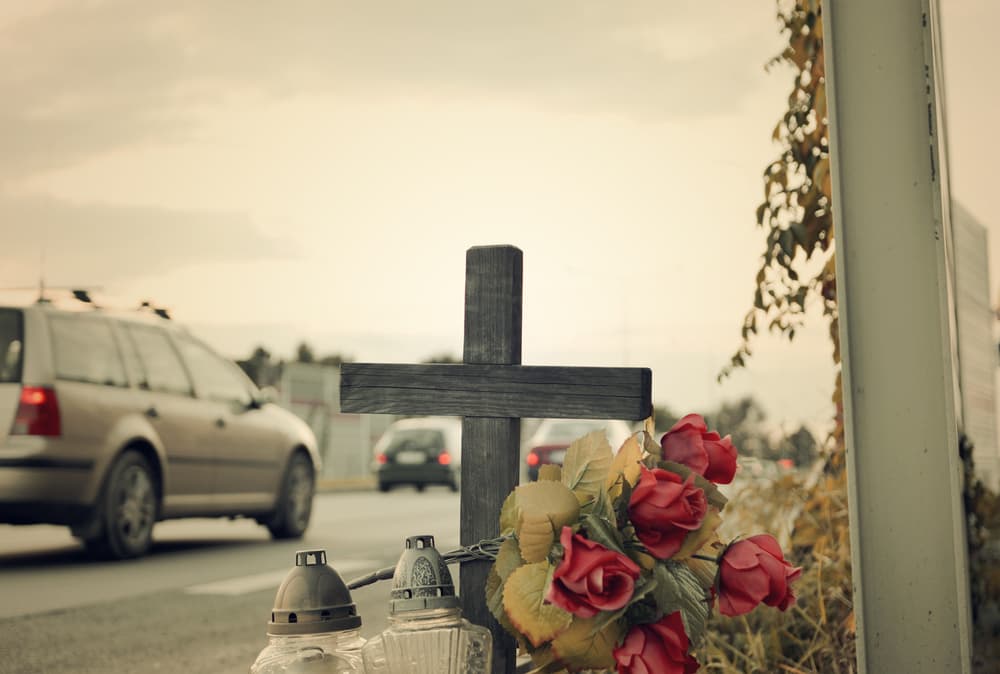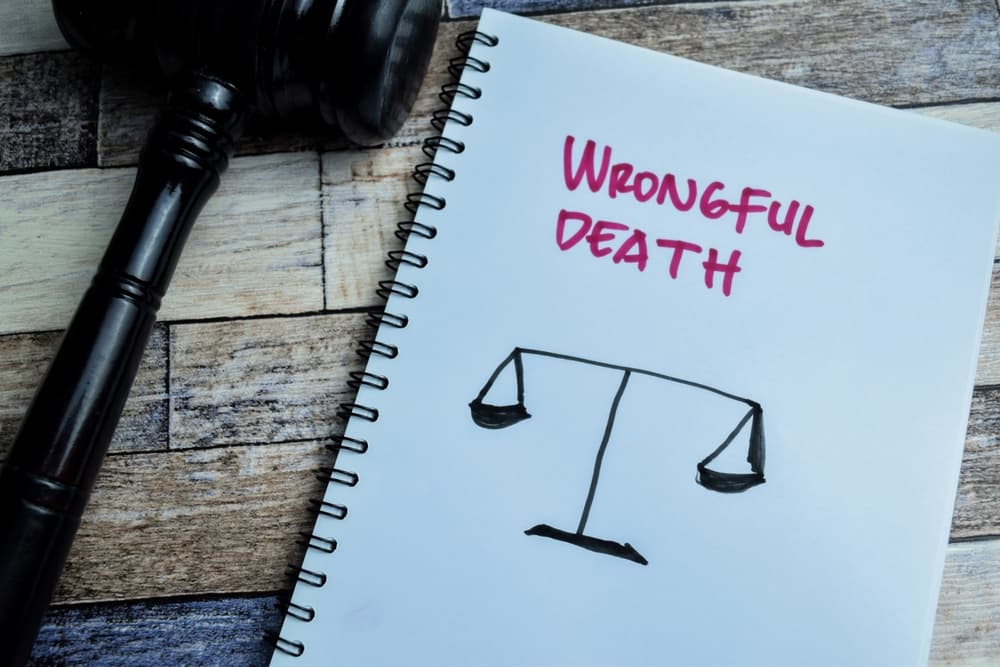When it comes to civil lawsuits, few matters are as emotionally charged and legally complex as wrongful death. Losing a loved one presents many challenges, but when the loss occurs at the hands of another, the level of agony, stress, and worry heightens.
Following the untimely death of a loved one, do not hesitate to seek assistance from a qualified wrongful death attorney.
Lawyers experienced with handling wrongful death claims have a unique understanding of the hardships and burdens that arise from the unfortunate loss of a beloved family member. A wrongful death lawyer in Michigan can represent your best interests and fiercely pursue the compensation you and your family deserve.
Schedule a Free Initial Consultation Today!
Defining Wrongful Death
Wrongful death is a legal term that refers to a situation where the negligence or misconduct of one party results in the death of another person. When a person dies because of another’s misconduct, the victim’s family may file a wrongful death lawsuit.
Wrongful death claims allow surviving family members or dependents to seek compensation for their loss through a civil lawsuit. Such lawsuits provide financial support for surviving family members who relied on the deceased for economic and emotional support and to hold responsible parties accountable for their actions.
Who Can File a Wrongful Death Lawsuit?
Not just anyone can file a wrongful death claim to recover financially for someone’s death. The parties who may have the right to file a wrongful death claim are dictated by state law.
In some states, like Texas, only certain individuals, including the victim’s spouse, children, or parents, can bring the action. If none of these parties are available, the victim’s personal representative may bring the wrongful death lawsuit. Only the personal representative may file the claim in other states, like Michigan.
A personal representative handles a person’s estate after their passing. Among their many tasks, including notifying beneficiaries of the decedent’s death and handling property distribution, they may also handle legal claims on behalf of the decedent’s estate.
If you’ve lost a loved one and wish to file a wrongful death lawsuit, it’s important to understand how your state’s laws work. A wrongful death lawyer in your area knows relevant laws and can determine who can file your claim.
Civil Liability vs. Criminal Charges Following a Death
There is often some confusion concerning the difference between civil and criminal cases following a death. The two are very different types of cases with dissimilar outcomes.
A wrongful death lawsuit is a type of civil lawsuit involving a plaintiff (in this case, the victim’s family member or personal representative) and a defendant (the party responsible for the death. When you sue someone for wrongful death, you’re holding them responsible for their wrongdoings while also seeking financial compensation for the losses and expenses stemming from the death.
In a civil wrongful death case, the plaintiff has the burden of proof, meaning they must demonstrate the defendant’s liability by a preponderance of the evidence. This means the plaintiff must show that it is more likely than not that the defendant caused the victim’s death.
A liable defendant in a civil lawsuit must pay the plaintiff. Financial compensation may come via a settlement outside court or an award during trial.
Depending on the cause of death, the party responsible for the victim’s death may also face criminal charges. In a criminal case, the prosecution must establish the defendant’s guilt beyond a reasonable doubt, which is a much higher burden of proof. If a defendant is found guilty, they face certain repercussions, including fines and jail time.
A defendant can face both civil liability and criminal charges based on the circumstances.
Wrongful Death vs. Survival Actions
Often, wrongful death lawsuits and survival actions are confused. The two represent different types of legal claims.
In a wrongful death lawsuit, surviving family members can pursue compensation for their own losses resulting from their loved one’s death. On the other hand, a survival action allows a decedent’s estate to seek financial recovery for the decedent’s personal losses suffered after sustaining injuries but before their death.
Wrongful death claims and survival actions provide compensation for different types of losses. Survival actions are not always allowed, and when they are, surviving family members must usually choose between a wrongful death lawsuit or survival action.
State laws govern survival actions. Therefore, if you want to learn more about survival actions and the difference between the two types of cases, it’s best to speak with a personal injury lawyer.
Common Types of Wrongful Death Claims
Generally, wrongful deaths are the result of negligent or intentional actions or omissions. Many situations can cause a wrongful death, with some of the most common including:
- Vehicular collisions, including car, truck, and motorcycle accidents
- Bicycle accidents
- Pedestrian accidents
- Premises liability accidents, including slips and falls and dog bites
- Use of defective or malfunctioning products
- Nursing home negligence or abuse
- Medical malpractice
- Workplace injuries
- Criminal acts, including murder
Many situations can result in a person’s death, but to have a wrongful death claim, the victim’s death must result from a party or entity’s wrongdoing. If you believe your loved one died at the hands of another, speak with a wrongful death attorney right away.
Liability for Wrongful Death
Several parties can be liable for a wrongful death. Fault depends on the events leading up to the victim’s death.
Some of the parties that can be responsible for a wrongful death include:
- Car and truck drivers
- Drivers’ employers
- Healthcare providers, including doctors, nurses, and pharmacists
- Cargo loaders
- Governmental entities
- Maintenance and repair companies
- Product designers, manufacturers, and distributors
- Caregivers
Determining who is responsible for your loved one’s death can be tricky. In some cases, more than one party can share liability. A wrongful death attorney can thoroughly investigate the case first to determine the exact cause of the death and then figure out who can be held responsible.
Potential Compensation for Wrongful Death Cases
When seeking compensation for your loved one’s death, it’s helpful to understand the types of damages available for wrongful death cases. The damages you’re entitled to receive depend on the specifics of your case and aim to provide much-needed compensation for your related expenses and losses.
Plaintiffs can recover economic and non-economic wrongful death damages, including:
- Medical expenses
- Funeral and burial costs
- Loss of future earnings and benefits
- Pain and suffering
- Loss of love, companionship, and support
- Loss of consortium
In some cases, surviving family members may also be entitled to punitive damages. Punitive damages punish a defendant’s willful, malicious, or grossly negligent actions. Eligibility for punitive damages depends on state law.
Determining the damages you can obtain for your loved one’s wrongful death is crucial to help ensure you get the compensation you deserve. Your wrongful death attorney can assess your damages and calculate the value of your losses to pursue full and fair financial recovery.
Is there an Average Settlement for Wrongful Death Claims?
It’s common for plaintiffs to wonder what the average payout would be for their type of case, especially when it involves death and extensive financial burdens. Still, there is no average settlement for wrongful death claims.
Every type of case involving a death is unique. Everything about your case is different from all other cases, from the cause of death to the details concerning the victim. Therefore, the value of your claim depends entirely on your situation’s specifics.
When you hire a wrongful death attorney, they can investigate your case and gather critical information. Based on their findings, they can clarify how much your case is worth, giving you an idea of what you can expect from a settlement or award.
Determining the Value of Your Wrongful Death Case
While investigating your case, your wrongful death attorney will evaluate several factors that heavily influence the value of your case, such as:
- The victim’s age and health at the time of their passing
- The total cost of the victim’s medical expenses incurred prior to their death
- The total cost of the victim’s funeral and burial
- The victim’s lifetime earning potential
- The ages and needs of the victim’s financial dependents
Along with the above, other details, including evidence, can affect the eventual payout for a wrongful death claim. The stronger the evidence, the more likely you are to successfully establish the defendant’s wrongdoing and obtain favorable compensation.
Evidence often used in wrongful death cases includes:
- Medical records and bills
- Police reports
- Photographs
- Surveillance footage
- Eyewitness statements
- Expert testimony
A wrongful death attorney can ensure you get the evidence you need to substantiate your claims and prove your losses.
Statute of Limitations for Wrongful Death Lawsuits
The statute of limitations is another factor that strongly impacts a wrongful death claim.
Statutes of limitations are laws that bar legal claims after a certain time passes. Under the statute of limitations for wrongful death claims, you only have a short window of time to file your claim in court to pursue compensation.
Time limits for wrongful death claims vary by state. Some states, like Michigan, give you three years from the date of the victim’s death, while other states, like Louisiana, only give you one year to file your claim.
If you’re interested in pursuing a legal claim following a loved one’s death, you need a lawyer who knows how long you have under your state’s laws to avoid missing your opportunity.
Failing to file your claim timely can have negative repercussions. The court will likely throw out your case, leaving you unable to seek financial recovery.
Don’t forfeit your rights to compensation. As soon as you’re able, hire a wrongful death lawyer. The sooner you seek legal assistance, the sooner your attorney can begin working on your case.
Do I Have a Valid Wrongful Death Claim?
Losing a loved one is sad and overwhelming; it is truly one of the worst parts of the human experience. However, not all deaths constitute a wrongful death. You may have a valid legal claim for wrongful death if you have:
- The death of a loved one: The death must be caused by wrongful action or inaction of another party.
- Negligence or liability: The death must have resulted from the defendant’s negligence or intentional misconduct.
- Surviving family suffering losses: There must be surviving family members or dependents who have suffered measurable damages as a result of the death.
If you’re wondering whether you have a wrongful death case, avoid asking others’ opinions or turning to the internet for answers. A wrongful death attorney is the best source for answers concerning a potential case. During your consultation, your lawyer can review your case’s facts and determine whether you have a viable claim. They can begin working on your behalf immediately if you have a case.
It is well worth exploring your legal options with a qualified attorney. When you lose a loved one as a result of another’s misconduct, speak with a local wrongful death lawyer.
Following the Wrongful Death of a Loved One, Do Not Wait to Seek Legal Assistance
Losing a loved one under wrongful circumstances can affect you mentally, emotionally, and financially. You deserve to pursue justice and compensation alongside a strong legal ally.
As soon as possible after your loved one’s passing, discuss your case with a Michigan personal injury attorney. A lawyer will work diligently to protect your rights, represent your best interests, and obtain the most favorable case result.
A wrongful death case can be complex, and navigating the legal system alone can be overwhelming. An experienced attorney will protect your rights and fight to hold the responsible party accountable.







